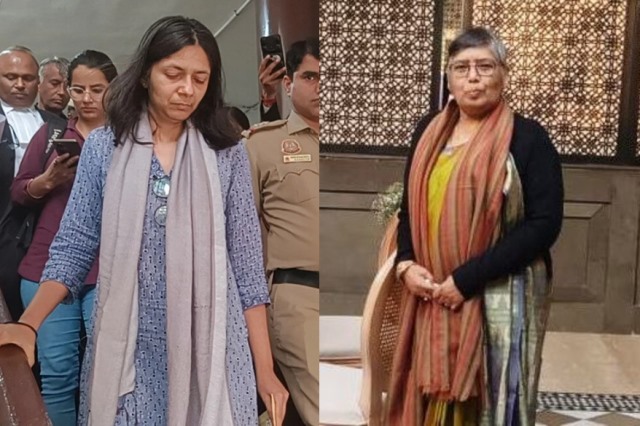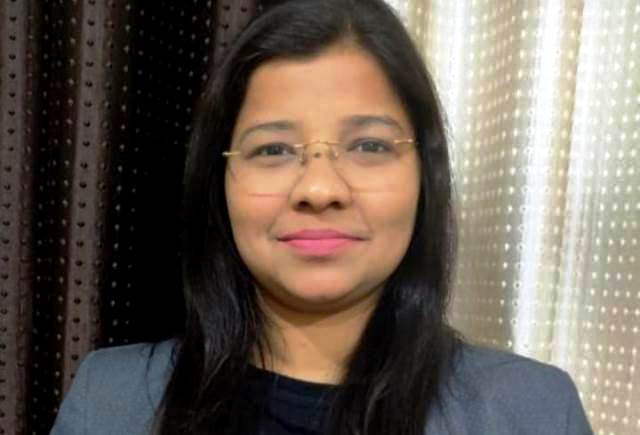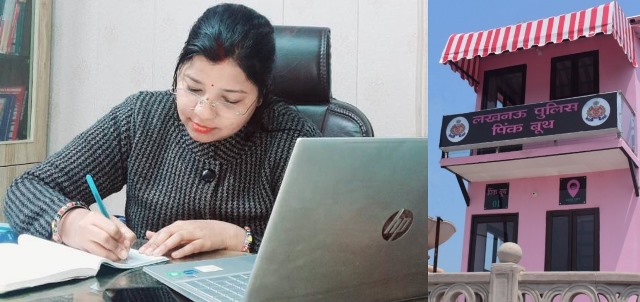The night of the RG Kar assault, another lady doctor who works with the military went for an emergency medical case. A military vehicle picked her up. She went and managed it. And was dropped back in the same car. She only thought of the case at hand. But now, she can’t help but feel guilt.
“This affected me for a long time. What disturbs me every day since the RG Kar case is that being in the defense services, I am safe while another girl doing the same job in the civil isn’t,” said the doctor who is an Indian Air Force officer on conditions of anonymity.
In 2022, India witnessed 86 rape cases daily. In 2024, the conviction rate remained low at 2.56%. From just August 9 to August 22 2024, India has witnessed 24 rape cases. The Orissa case, where an army officer’s fiancee was molested in a police station, and the Mhow rape case, where an officer’s friend was raped in front of him show that the military is not aloof from the larger Indian culture.
This points to a deep-rooted hatred towards women in a country that claims to venerate womanhood as divine.
The lady officer from the medical corps said that the threat to women is forever present in our society. The difference is that of the degree. “Such cases are now on the rise in the Fauj (army) as well. Look at the Air Force case now,” she added while pointing to the alleged rape of a lady officer by a Wing Commander. The commander is out on pre-arrest bail.
Reema Bhatia, professor of Sociology at the University of Delhi, explained that the low conviction rate and poor treatment of victims are interrelated. “Given the fact that the patriarchal structure dominates in India, victims and their families sometimes do not have the social power and wherewithal to oppose the perpetrators who are often doubly privileged due to their gender and sometimes also their social status. All of this is reflected in the low conviction rate. No one wants to confront those in power from a disadvantageous position.
Let’s not forget that all institutions are populated by the same men. The question that needs to be asked is whether their limited training equips them to overcome deeply entrenched thinking and normative thought processes inculcated from birth?”
The lady officer in the Indian Air Force further explained that in the Air Force, there is an internal committee that meets quarterly to ensure women’s safety and handles such cases (sexual assault and harassment) discreetly. However, the army is a hierarchical system and tries to not such let stories come out to the public. “This is to ensure the privacy of the complainant and the reputation of the organization.”
Army has its own set of laws, she explained. “But, what makes me sad is that we never treat the cause from the roots. Whatever cases I have encountered till now, the solution delivered was okay but not permanent. People are scared to take tough calls. When they want to, the seniors stop them. But, majority cases are well-dealt.”
She reiterated that such cases have a low level of incidence in the army because people fear the outcome – fear of losing jobs, reputation, and stringent punishment.
“When a disease spreads, it doesn’t differentiate between people. We know how such cases are increasing outside, and no solution is in sight. This gives even the army people the courage to do such things. The whole mentality is sick.”
Some of the lady wives also echoed the officer’s sentiment.
Elina, a senior army officer’s wife said, “It’s a systemic deterioration in our society on the whole and it is reflected in our army also. Hamare yahan (in India) problem ye hai ki hamare yahan do law chalte hain. Ek constitution ka aur ek ye social stigma ka (The problem with India is that our society runs on two kinds of laws- one constitutional and one of social stigma.)”
She said people are judging the officers and their friends involved in the Mhow case but victim shaming is not the solution.
She said the real problem is the people who claim to be custodians of morality for our society. “Ye society ke thekedaar bante hai, hamari sabhyata, hamara culture. Inhe yahi lagega ki ye log yahan girlfriend ke saath hain, hamari society ko kharab kar rahe hain. Ye rape hi karenge. Padhe likhe toh hain ni (These people act like custodians of society in the name of our culture, our civilisation. They are illiterate. They feel that people from the military are here with their girlfriends, they are ruining the fabric of our society).”
Vareni Awasthi, a PhD researcher specializing in socio-political philosophy and ethics at the University of Delhi said: “It’s interesting how two consenting adults, probably in love, going out and getting intimate are stigmatized. On the other hand, the same act, but in a non-consensual and violent manner is considered okay.”
“These custodians of morality consider it okay to rape as a form of punishment. This clearly points to a power dynamic at play here. Somehow, the idea is that if they claim the rape to be a punitive action, they may get away with it. It may be morally justifiable if not legally. A woman’s autonomy is not something that even remotely concerns them, sadly.”
Elina said too much exposure of the army to the outside world is also a reason the armed forces are losing respect. She said this will eventually lead to the Army losing its value and its importance. “I think the army should maintain their traditions and avoid getting involved in political and civil activities on an official level. We should have control over our functioning and we should be a non-political, secular, and traditional organization which makes the Indian army one of the best in the world.”
In the separated family (SF) quarters of the Indian army, where women stay alone with their families, sometimes even in secluded areas, women are sharing concerns around their own safety. An army wife said, “Why have civil guards, that too at SFs? I have nothing against civil guards but we should have our own men from CMP (Corps of Military Police). They are trained a certain way. They know how to deal with threats and are of a fitting age unlike those that come from these civil agencies. A soldier’s loyalty to duty is something else.”
She gave an example of the guard in her current SF who is not only old but also has a drinking problem and has no weapon. “He is not a bad person, does not misbehave, but his overall personality does not inspire confidence, especially in this day and age when crimes against women are increasing.”
In separated families, the officer is posted to a field location where he is serving the country while the family stays behind. As the army continues outsourcing security jobs to civilians, Elina quipped, “People who are guarding the country are being guarded by civilians now,” noting a major move culturally.
Another lady wife Ritu remarked on the opening of cantonments: “When somebody is out fighting, and is not available for their family, who protects the family? Apke ghar me diware hoti hain, vo family ka dhyan rakhti hai. These cantonments are these walls. They take care of our families. A cantonment is another line of defense for when the officer is leaving to ensure that his family is safe.”
As per a 2023 government notification, cantonments are now to be disbanded altogether and converted into military stations. “Similar moves in the past have triggered widespread criticism in the past that the powerful politician-builder lobby was eyeing the sprawling cantonments after virtually running out of lucrative land in cities like Delhi, Mumbai, Lucknow, Pune, Kolkata, Ambala and others,” noted a media report.
Meera, an Army wife, said that all she wants is that if it’s too problematic to keep cantonments closed in the day, at least close it at night. “We don’t always get the protection of good cities either. From the smallest village in UP to a forest in Bengal, we can be posted anywhere. We see theft incidents in Cantonments now, you see.”
In 2012 a defense personnel’s body was found in a Lucknow Cantonment Board guest house. In 2022, burglars had left stolen jewelry from a Sadar shop (area adjacent to Lucknow Cantt) worth lakhs in the Cantonment area. To stay safe, Meera keeps a daao (Indian weapon) in her car, and Ritu keeps a paper knife.
The general sentiment in the military remains that despite recent news events, the army and its culture are way better than the environment outside right now. “While going to any civil area, I just refrain from interacting with anyone. I try not to even make eye contact. I don’t feel safe. There is no doubt that when compared with the civil, we are safer inside,” the doctor in the Air Force said.
(The writer is an Army wife. Some of the names in this feature have been changed on request)
For more details visit us: https://lokmarg.com/



